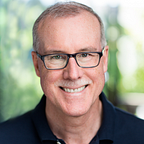Corona Physica: Summary
Nature is beating the hell out of our pandemic response
Our Covid behaviors and policies are radical and excessive.
Even so, nature is thwarting us in three areas: masks, testing, and lockdowns.
We need to think more clearly and carefully about how to deal with the virus.
The year 2020 has tested our minds and our resolve as never before.
Even now, after so many months of this mental effort, we have still retained an interest in taking this vast body of information and applying it to two key questions:
Are we safe, and will this ever end?
My overall take is that this is a reasonably serious pandemic, worse than average and worse than a bad flu season, but nothing like the Spanish Flu or a number of other truly frightening past outbreaks.
Our collective reaction, by contrast, is right off the charts, an unprecedented social crisis with ongoing elements of compulsion, shaming, and blaming that add an extremely unpleasant edge to this already disruptive time.
The mistaken extremism of this collective response is ultimately proven by its on-going failure to stop the virus.
If social distancing, masks, lockdowns, restrictions, and the like actually worked, then this pandemic would have ended months ago, since we have thrown literally everything at it: our time, attention, effort, resources, technology, institutions, and money.
Instead, nature is treating us to humanity’s greatest ever lesson in humility. Despite our heroic efforts, we have had no discernable impact on the spread of this virus. That we cannot understand or accept this simple fact only adds to the epic folly of our time.
So, there is a massive perceptual discrepancy between what we have done (our extreme reaction), what we think we have achieved (control over the virus), and what has actually happened (an unimpeded pandemic).
We think that we can assert control, but that viewpoint is utterly mistaken. The error is in our mental reckoning of the situation and it starts with fundamentally flawed assumptions in so many areas.
The full article looks at three in particular (masks, testing, and lockdowns) and shows where basic natural facts fatally undermine our beliefs and behaviors.
There are, however, two places where we are free and clear of nature’s pernicious grasp: our minds and our society.
We can choose to think clearly and carefully about how to deal with the virus.
That involves having an open discussion of the issues by taking account of all points of view, without engaging in slander and misrepresentation of unwelcome views.
It requires people to speak out so that we can have a full conversation, addressing every possibility and testing ideas and hypotheses in good faith.
Thinking deeper and longer will help, as it is noteworthy this year that so many people only seek out evidence that supports their already strongly held views. Society and nature are complicated and so we should not expect easy, obvious, and simple answers.
We need balance and proportion as well, so that we can assess inevitable trade-offs and come to reasonable policy decisions. We need to accept that there will always be unintended consequences, especially when we are attempting to affect the actions of everyone in society.
Finally, as public health officials are fond of saying, we should “be kind and be calm”. Respect for others is a necessary component in seeking out the truth of things and the way to do that is to actively listen, contemplate, and respond with affection and good humor.
Though we try and try to end this pandemic, it seems to me that it is mostly a fool’s errand. The result is that we have harmed far more people than the virus with our botched and excessive response.
To constant political calls of “do something”, I say “do no harm”.
We are today the very definition of hubris, with a misplaced view of our humble position in the natural world, and it is doing us absolutely no good.
The full article can be found here.
